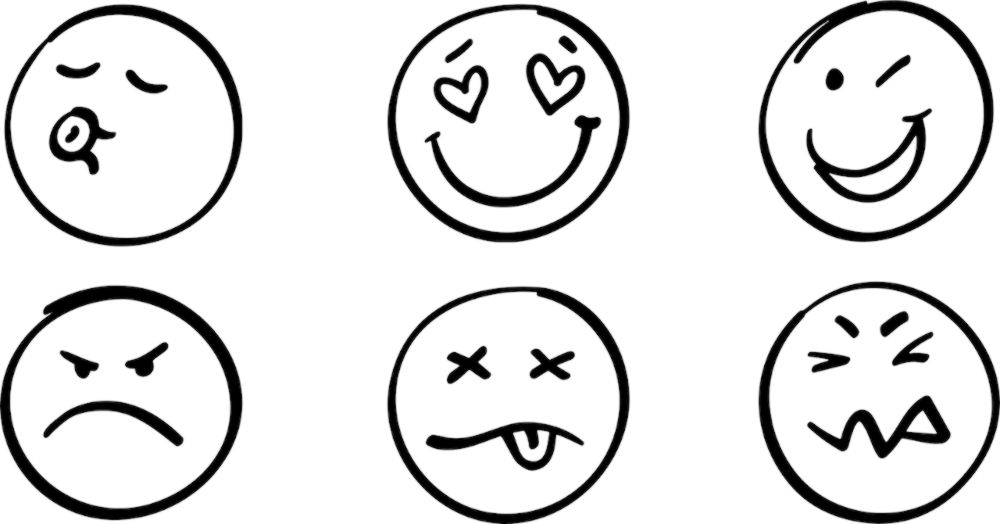Let's Talk About Emotions
By Jenny Schaafsma, PhD
October 2020

We all have them. Our emotions can be pleasant, unpleasant, or neutral.
Emotions serve a function in our lives. For example, fear alerts us to threats to our life and wellbeing, guilt alerts us to actions that threaten our values, and love organizes responses for survival, reproduction, and attachment. At times emotions can feel incredibly overwhelming and difficult to manage.
Emotion regulation is a practice of managing ones' emotional experience.
There are several factors that can make it hard to regulate emotions, such as biological factors, lack of skill, reinforcement of emotional behavior, moodiness, emotional overload, and emotional myths. In order to learn how to better regulate our emotions, it's important to be aware of what myths we believe about emotions.
Here are a few myths about emotions:
There is a right way to feel in every situation
There's not! You are entitled to feel how you feel in response to a situation.
Letting others know that I am feeling a negative emotion is a sign of weakness
This is actually a sign of courage and strength. It takes courage and vulnerability to share with someone else how you are feeling.
Negative (unpleasant) feelings are bad
Yeah they don't feel great, but our feelings serve a function and are trying to tell us something and organize our response to a situation. I prefer to look at emotions that are generally considered negative as unpleasant. They are unpleasant to feel, but that does not necessarily mean they are negative.
I will always feel this way
You'll likely experience a spike in your emotional response, however, eventually it will come down (usually after a few minutes). Our emotions have a shelf life.
Emotions should always be trusted
At times, our responses may be based on emotions and not on factual evidence. It's possible to misread your emotions. For example, I may be in a public speaking situation about mental health and my stomach rumbles. Now it's possible I could interpret that as I am hungry and excited to present or I may interpret it as if I'm nervous and feel sick to my stomach.
In order to learn how to better regulate our emotions, it's important to be aware of what myths we believe about emotions.
These are a few of the many myths about emotions. Are any of these myths a part of your belief system? How does believing that myth impact your behavior? What would be different if you acted in a way that opposed that myth? For example, if I believed that negative feelings are bad, the might cause me to bottle up how I feel and not share with anyone. This in turn would likely amplify the level of distress I'm experiencing because emotions don't just disappear when we bottle them up. I've just created a debt of emotions I haven't attended to. Now if I acted in an opposing view of that myth, I would allow the unpleasant emotion to be there, acknowledge and name that emotion or find an alternative way to express that emotion, like journaling or talking to someone rather than suppressing it.
To summarize, there are several factors that can make it difficult to regulate emotions. In order to learn how to better manage emotions, it's important to be aware of what myths we believe about emotions. These myths can negatively impact our ability to identify, experience, understand, accept, and express our emotions. Increasing your emotional literacy, the ability to understand and express emotions, is helpful in improving mental health and relationships.
By Jenny Schaafsma, PhD
October 2020
About the Author

Jenny Schaafsma, PhD
Jenny Schaafsma is a Psychologist at HRA Psychological Services specializing in adolescent, young adult, and adult counseling. Jenny often works with people on identifying, understanding, accepting and expressing their emotions. If you need support in managing your emotions, you can contact her by clicking here.
Learn More
